Minsk’s muddled media clampdown could jeopardize warming of relations with the West.
Andrei Yahorau: Real activity is substituted by the "magical" political rituals

The efforts made to revive the Supreme Council of the 13th Convocation are political formalities that substitute actions aimed at real unification of pro-democratic forces. This opinion shared Andrei Yahorau, political scientist and the head of the Centre for European Transformation in the talk with the EuroBelarus Information Service.
The meeting of the Supreme Council of the 13th Convocation took place on March 15. At the meeting the statement condemning uncontrollable public sell of the national property by the unwarranted power was adopted.
“Such kind of statements and meetings refer to the simulated hyperactivity typical of the political players in the situation when they know what to do and what efforts to make, but have absolutely no wish to do so,” assumes Andrei Yahorau.
It is clear that in the current situation we need to aim at the creation of a unified player who will be equipped with the political guidance, he noted. “But due to all sorts of reasons movement towards consolidation is not possible for the participants of the political process. And all the efforts to initiate such movement fail. But they have to simulate political activity anyway; that is why such political magical rituals are performed,” thus the expert described the political situation.
“It is a peculiar campaign that seeks to revive outworn politicians so that they would be able to perform any actions. The appeal to the Supreme Council of the 13th Convocation is an attempt to revive something that has died long time ago,” Andrei Yahorau delivered his verdict.
Besides, today all the talking about the legitimate status of the Supreme Council’s of the 13th Convocation meeting are out of place, highlighted the expert. He emphasized that this body has lost his opportunity to become a member of the Parliamentary Assembly of the Council of Europe.
On the other hand, the issue raised by the deputies of the Supreme Council dealing with the privatization of state property that is not controlled by the society is really important.
“We can be deprived of the considerable part of our national heritage without any chance to understand where the money from this process will go to. They are most probably to be directed for the development,” assumed the political scientist.
“This problem is serious indeed", Andrei Yahorau agreed. "But as any serious problem, none of the existing political players can solve it. Anyway, in order to find a solution, we need the much talked-about consolidation no one wants to achieve”.
Others
-
In Belarus, a rising fear: Will we be the next Ukraine?
The relationship between Russia and Belarus has never been an easy one. The two former Soviet republics have spent the last two decades on a roller coaster ride — sometimes allies, sometimes adversaries in heated public rows.
-
The EU’s Benign Neglect of Eastern Europe
Between November 6 and December 11, 2015, Carnegie Europe continued its Capitals Series. In this second phase, the focus was on the EU’s Eastern neighbors, which the bloc has so often zigzagged over in trying to establish a coherent policy toward them collectively or bilaterally.
-
New ENP and Civil Society’s Role in Focus of the 7th EaP CSF Annual Assembly (Photo)
The 7th Annual Assembly of the Eastern Partnership Civil Society Forum was held in Kyiv on 19-21 November attracting around 300 participants, observers and guests who attended more than 20 sessions and a Networking Fair in the framework of the Assembly.
-
Is social economy a phenomenon for Belarus?
The conference “Social economy: how to be successful despite the crisis” launched in Minsk on October 22.

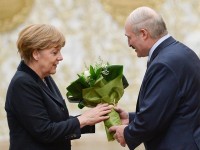
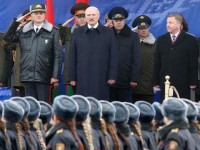
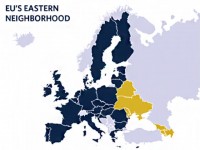
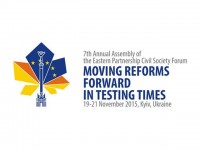
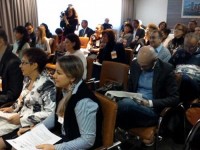


Comments
From farewell to a new Eastern policy and towards a new development
Poland and Germany were both initiators and drivers of a New Eastern policy linked to the Eastern neighborhood and Russia/Soviet Union.